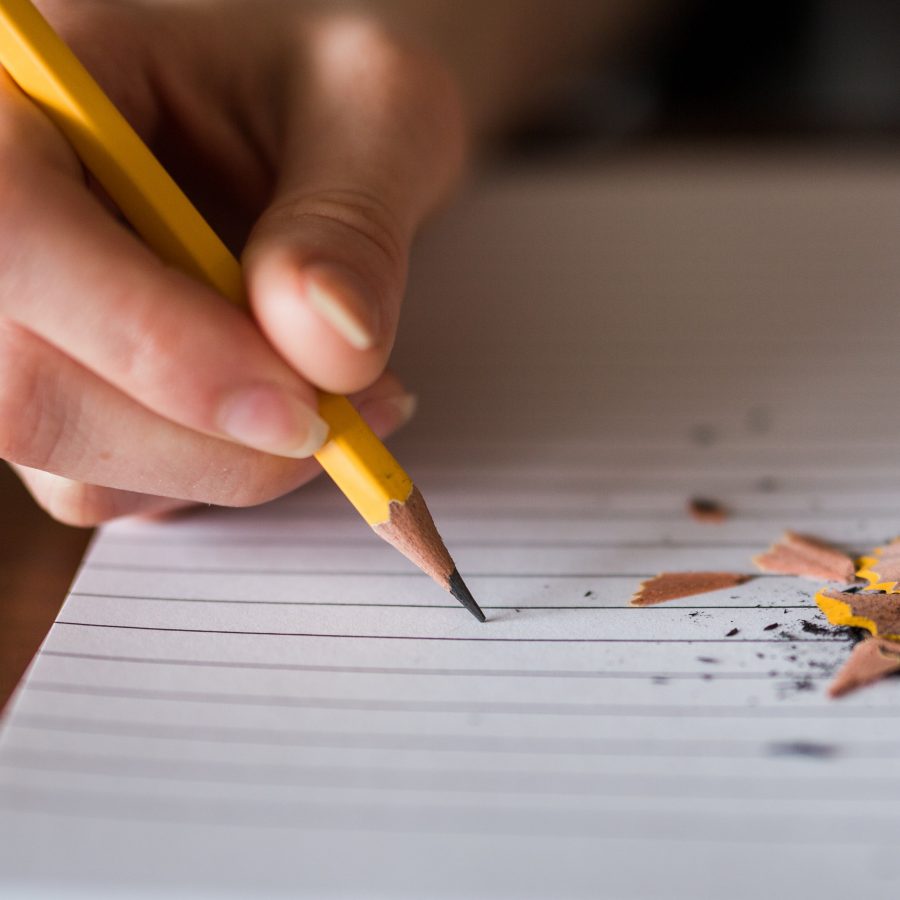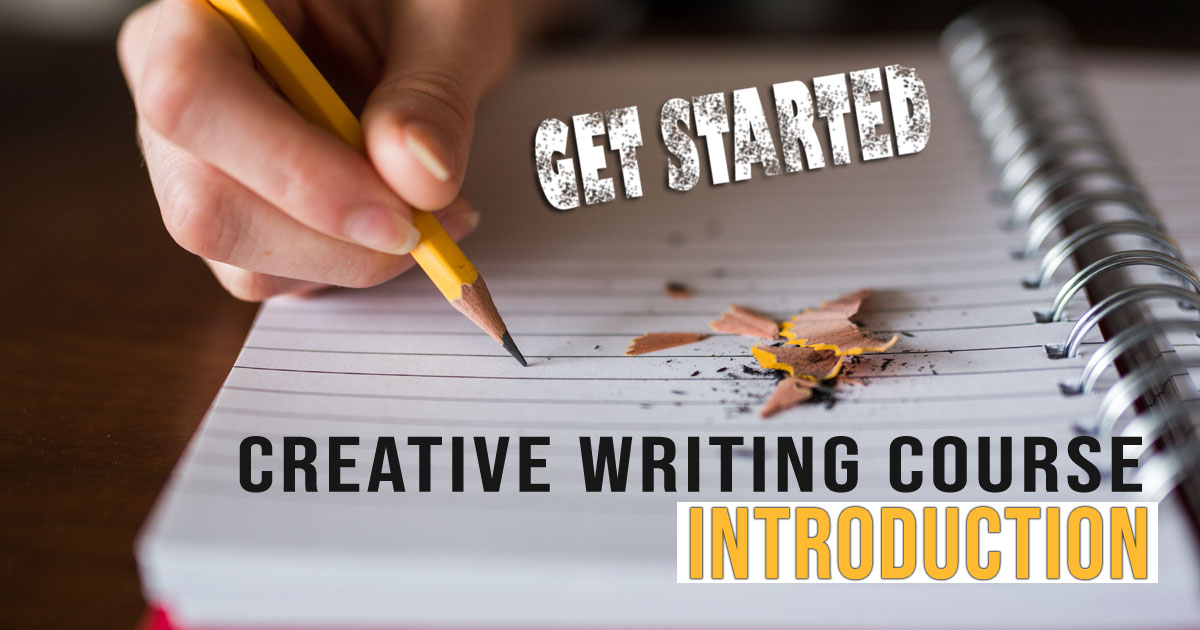Hello and welcome to my Creative Writing Course: GET STARTED.
This first course is aimed at anyone who wants get writing and improve their skills. There are twelve fun and easy to follow, weekly lessons with downloads and videos, all based on the ‘live’ classes I teach in Eastbourne (UK).
If you have any questions, do feel free to put them in the comments.

HOW DO I BECOME A WRITER?
Do you mean, someone who makes a living from writing, or someone who writes for pleasure?
If you want to make a living from being a writer, then there is a huge amount you should learn about ‘The Business of Writing’ and there are lots of websites and YouTube tutorials that can help you, but first, you need to get writing – because the way to get good at writing is to write – A LOT.
Why? Because writing is a craft, and like any craft – the more you do it, the better you get. Just take a look at the very first novels of many well-known writers. Quite often you will see a marked difference in their ability, style and confidence.
Writers also:
- Subscribe to writing magazines, such as Writing Magazine (www.writers-online.co.uk) or Writers Forum (www.writers-forum.com) which are both UK magazines, or The Writer magazine in the USA
- Attend local Literary Festivals – most towns have them and they are great places to chat to other authors and people in the business of writing and publishing.
- Join Facebook groups for writers and writing groups, which provide excellent support, information and useful resources.
Attend a writing group. There may be several in your area, so try them out and find a group that is a good fit for YOU, because they each have different ‘personalities’.
But most important of all,
Write. A lot.
WHAT SHOULD I WRITE ON?

I would encourage you to use a computer, rather than paper and pen because it allows you to edit more easily and if you are looking to publish, or self-publish, your writing will need to be typed.
However, if you only like pen and paper, then by all means keep using it.
Personally, I use Microsoft Word because it has everything I need to produce my self-published books but, there are specialist writing software packages that have good reputations, if you wish to invest in one.
WHAT SHOULD I AIM TO WRITE?
Before you get started, it is worthwhile noting that there are certain, pre-set expectations (from both readers and publishers) for the word-count of different genres or types of book. Numbers vary slightly, according to source, but are approximately:
| TYPE OF WRITING/BOOK | WORD COUNT |
| Standard Novel | 80,000 to 100,000 |
| Young Adult Novel | 45,000 to 80,000 |
| Science Fiction Novel | 100,000 to 125,000 |
| Literary Fiction | 55,000 to 100,000 |
| First Chapter books | 4,000 to 10,000 |
| Middle Grade Fiction (ages 9-12) | 30,000 to 55,000 |
| Novella | 17,500 to 39,999 |
| Novelette | 7,500 to 17,499 |
| Short Story | under 7,500 |
| Flash Fiction | Usually under 2500 |
| Flash 500 | 500 |
| Twitter story | 280 CHARACTERS |
| Zines (hand-printed A5 magazines – you can see lots of examples on Etsy.com – great for poetry.) | About 24 x A5 pages |
| Articles for magazines | 100 to 750 – or more |
| Blog post | Any length but around 2000 is preferred by readers. |
Whether you are considering self, or mainstream publishing, it is worth sticking within these guidelines until you are established.
FIVE ESSENTIAL TIPS FOR THE NEW WRITER
My course is listed by week, but not everyone has the time to dedicate to writing each week, so please don’t feel bad if you replace weeks with months or longer – the main thing is that you are writing, which means your writing WILL be improving.
Keep everything you write (even if you hate it, or think it is terrible) – all the exercises you do so that you can look back over them and improve them as your writing skills increase.
Don’t be discouraged if you do not get on with a particular exercise, or it isn’t something you want to write. By all means write something entirely different – as long as you are writing, that is a good thing. However, I would encourage you to step out of your comfort zone from time to time because you may find a new genre, or technique that you didn’t realise you loved until you tried it.
Enjoy your writing and be proud of it, whatever level you are starting at and know that every time you write, you will understand the craft of writing better.
Read more and look at the books you read from the point of view of a writer and ask, why did the author do it that way?

Leave a Reply